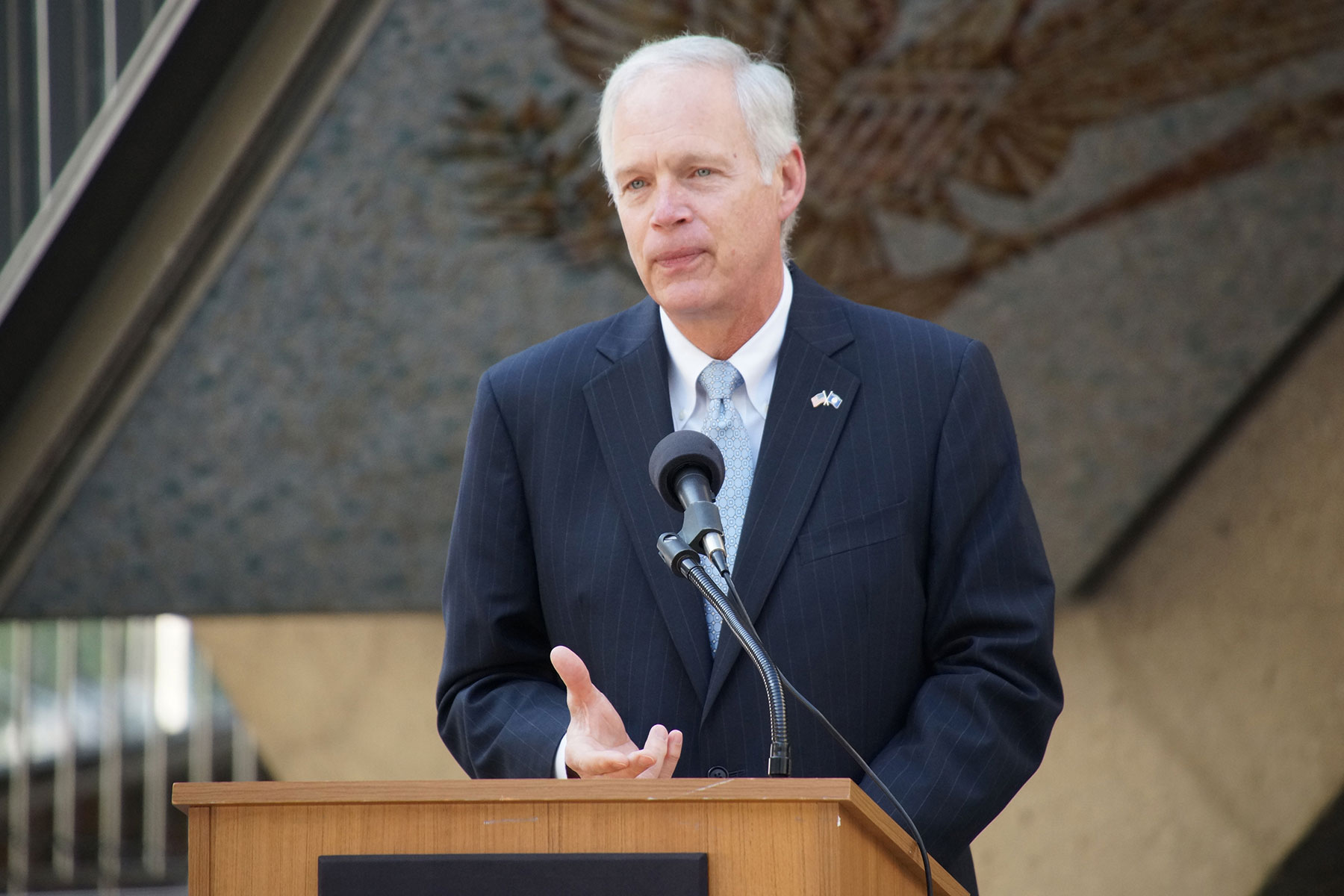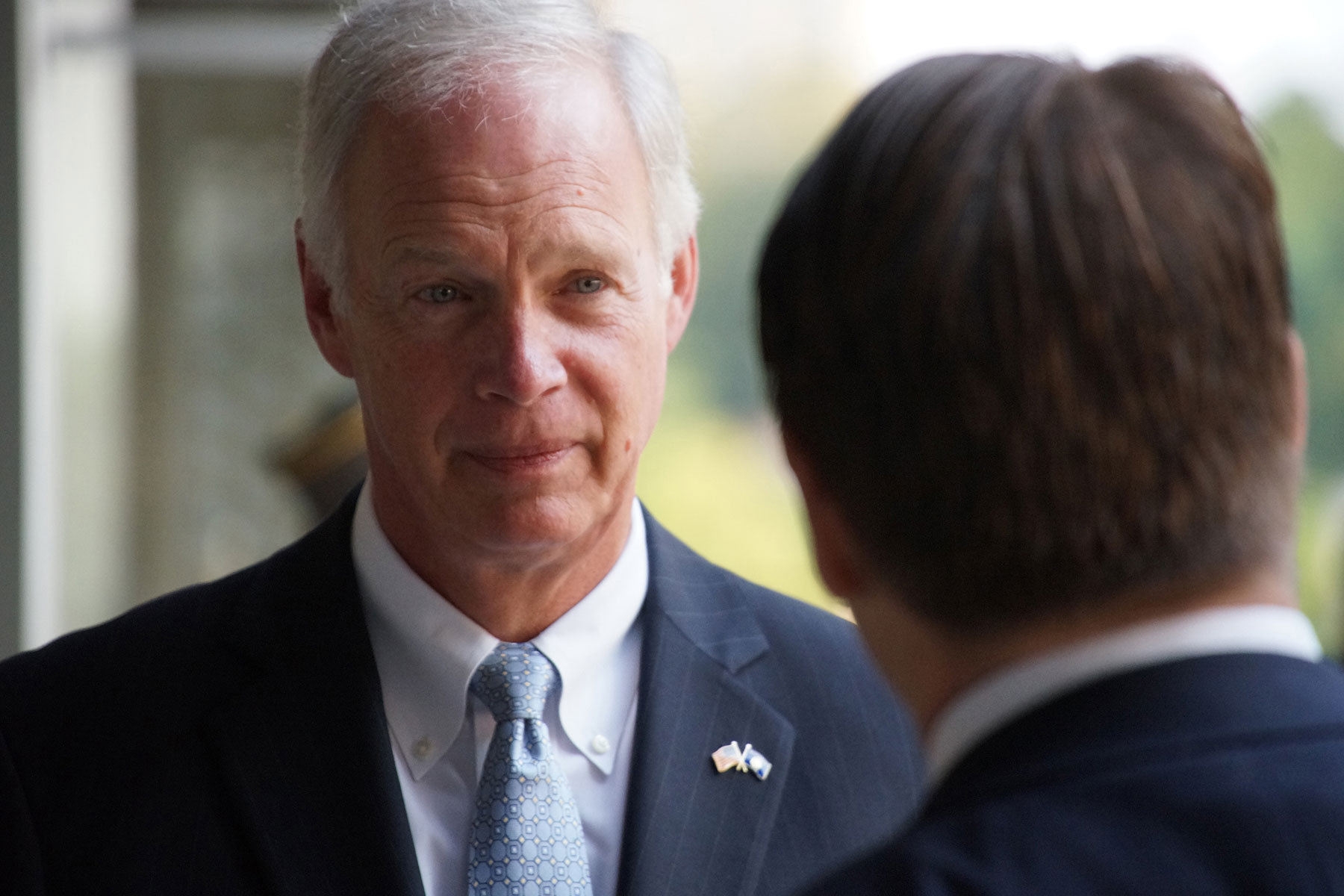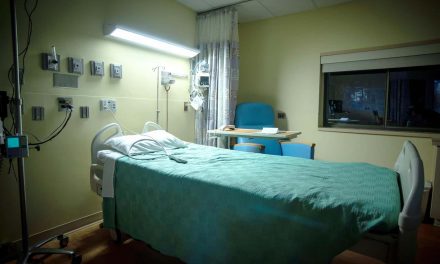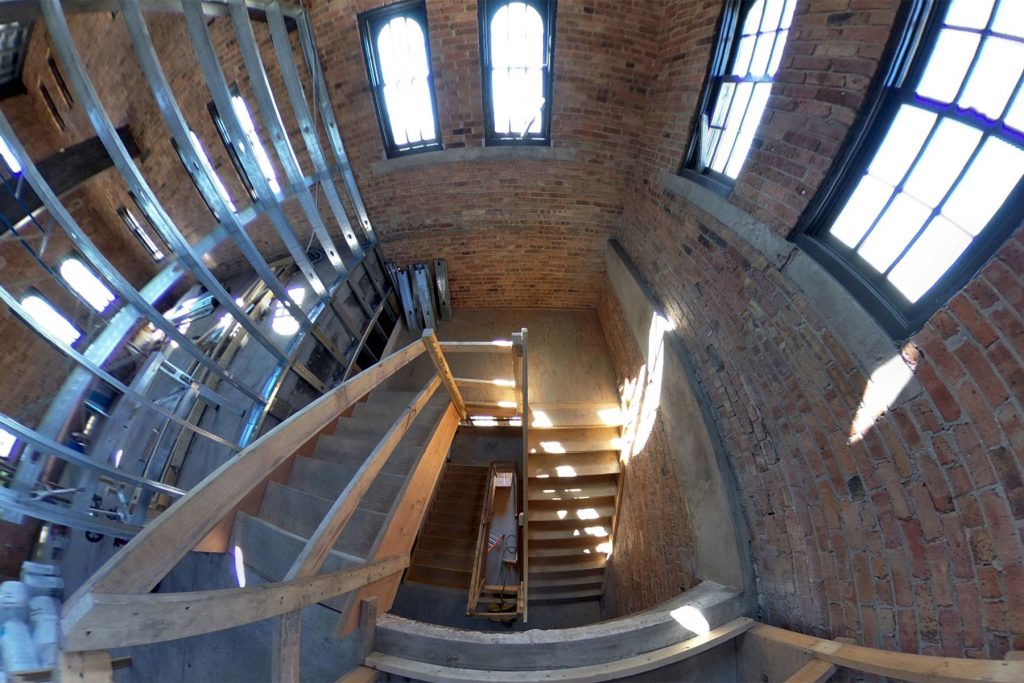
When Ron Johnson ran for the Senate, he pledged to put his fortune into a blind trust to avoid any appearance of a conflict of interest. Johnson broke that promise — and has advanced numerous policies that have helped him grow his wealth by as much as 100% since taking office, according to the nonpartisan Center for Responsive Politics.
The Congressional Integrity Project challenged the Wisconsin Senator on July 30 to put his money in a blind trust and disclose all tax returns from his decade in office.
“Senator Johnson was sent to Washington to serve the public, but it’s clear that he’s been serving his own bank account,” said Kyle Herrig, Executive Director of the Congressional Integrity Project.
Johnson defended his corruption on July 29, telling NBC that he did not recall making a campaign promise to create a blind trust and that his family run business would make it impossible for it to be truly blind. Johnson sold that family-run business this March to a campaign donor for as much as $25 million after attending a confidential briefing for members of Congress on the pandemic. The economy began to shut down just days later.
“A decade after failing on the promise that he would put his money in a blind trust, Senator Johnson is out of excuses. Johnson needs to stop running his office like a venture capital firm and put his money in a blind trust immediately,” added Herrig. “Johnson also owes it to the taxpayers to come clean on how much money he has made over the past ten years while collecting his $174,000 government salary. He can do so immediately by releasing his tax returns.”
The Congressional Integrity Project recently released a report, Covering For Corruption: Senator Ron Johnson, which detailed how the Senator substituted conspiracy for oversight and put his own financial interests ahead of his constituents in Wisconsin.
SELF-DEALING TO ENRICH HIMSELF AND HIS FAMILY
Johnson blocked efforts to crack down on corporate tax dodging while stashing money in an overseas tax shelter. The Oshkosh, Wisconsin resident owns 9.9 percent of DP Lenticular, a Dublin-based company, which is worth up to $500,000. The Irish company had one full-time employee and Johnson’s brother, Barry, sat on their board. The company is owned by a Spanish holding company that pays no taxes. Johnson’s ownership stake is just below the 10 percent limit at which he would be required to report it to the federal government.
Johnson repeatedly opposed measures to close the tax loophole that allows companies to avoid taxes by reincorporating in low-tax countries like Ireland. Given Johnson’s assets in DP Lenticular, these positions help protect his overseas investment. He defends these tax dodges as “just math” — and insists the real solution is actually lower taxes that would further enrich his family.
In 2017, Johnson cast the deciding vote for the Republican tax bill — but only after winning changes that would help line his own pockets. Before providing the crucial 50th vote, Johnson successfully pressured Senate leadership to lower taxes for pass-through businesses, or businesses whose owners report profits on their individual tax returns. Those changes significantly lessened the tax burden on companies like Pacur, still run by Johnson’s brother. That, in turn, would be expected to increase the value of Johnson and his family’s stakes.
The bill also provided a massive boon to private equity firms. Coincidentally, one such private equity firm, Gryphon Investors, bought Pacur in February 2020. The tax bill’s provisions appear to have benefited Johnson enormously. According to his senate financial disclosure forms, before the 2017 tax bill’s provisions had gone into effect, Johnson estimated his stake in Pacur was only worth between $1 million and $5 million. One month after Pacur was sold to Gryphon, however Johnson sold his stake for between $5 million and $25 million. As an added bonus the 2017 tax bill increased Johnson’s personal tax deduction, likely saving him hundreds of thousands more on tax liability.
As the country faced an unprecedented pandemic, Johnson made millions — and fought against relief for working Americans. According to Senate disclosures, Johnson sold his stock in Pacur on March 2 — before states locked down and markets began to sink. Johnson’s profits from the sale of his company may have been as high as $25 million.
The report insisted that Senator Johnson of Wisconsin ignored wrongdoing at the highest levels of government, while spearheading baseless investigations to curry favor with Donald Trump. As the economy spirals, he has contributed to the misery of a historic number of Americans who are out of work and struggling to get by. At the same time, Ron Johnson made millions and protected his assets thanks to policies he championed in Congress.
ILLEGITIMATE INVESTIGATIONS TO DISTRACT VOTERS
As the Chairman of the powerful Senate Homeland Security and Governmental Affairs Committee — the Senate’s chief oversight body — Johnson has a broad mandate to hold government officials accountable, especially in times of crises. Yet Johnson has refused to investigate widespread police brutality in response to peaceful protests for racial equality. And when it comes to investigating the administration’s failed response to COVID-19, it took Johnson four months and nearly 150,000 American deaths to even hold a hearing.
“Johnson continues to use his position to amplify President Trump’s conspiracy theories and investigate debunked claims about the previous administration. If Republicans control the Senate and Donald Trump stays in office, Johnson can continue to use his powerful perch to enrich himself and his family,” the report concluded.
© Photo
Lee Matz
















